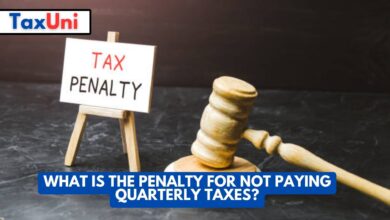Ohio State Taxes
Understanding Ohio's tax system can feel overwhelming at first. Ohio has a few different main taxes:

The state of Ohio has a variety of taxes, including sales and use taxes, property taxes, cigarette and alcohol excise taxes, as well as business income taxes. In addition, Ohio’s school districts may also impose local property taxes. The state’s property tax is an ad valorem tax based on value, and the homestead exemption shields up to $25,000 of a person’s residence from property taxes. A state sales tax of 5.75% is charged on most purchases, and county and transit authority taxes may add another 0.25% to 3%.
State and local sales and excise taxes are regressive, with poorer households paying a larger share of their income in such taxes than wealthier households. By contrast, state income taxes are progressive, with the top income earners paying a smaller percentage of their income in taxes than lower-income residents do. Several Ohio cities also charge local income taxes, and their rates vary by location.
Ohio Income Tax: Ohio has a graduated income tax, meaning the tax rate increases as your taxable income increases. The rates range from 0% to 3.75% for income earned in 2023 (filed in 2024). Some localities in Ohio charge an additional income tax on top of the state tax.
Ohio Municipal Income Tax (Net Profit Tax): Certain Ohio cities levy a tax on a business’s net profits within their jurisdiction.
Ohio Sales Tax: Ohio’s statewide sales tax rate is 5.75%, but counties can add their own sales tax, increasing the total rate to 8% in some areas. Some exemptions exist for certain items, such as groceries and prescription drugs.
Ohio Property Tax: Property taxes are levied by local governments in Ohio and are based on the value of your property. Ohio’s average effective property tax rate is 1.30%.
Motor Vehicle Taxes: These include registration fees and fuel taxes.

Ohio Business Taxes
- Commercial Activity Tax (CAT): This applies to the gross receipts of most businesses in Ohio.
- Gross Receipts Tax: Certain industries, like utilities, have a separate gross receipts tax instead of the CAT.
- Financial Institutions Tax (FIT): Banks and other financial institutions pay a tax based on their net income.
- Public Utility Excise Tax: Applies to electricity and natural gas sales.
Other Ohio Taxes
- Motor Vehicle Taxes include registration fees, title fees, and fuel taxes (gasoline and diesel).
- Estate Tax (No Longer in Effect): Ohio no longer has an estate tax for deceased residents.
- Severance Tax: Applies to the extraction of natural resources like oil and gas.
- Hotel/Motel Occupancy Tax: Some localities levy a tax on guest room rentals.
How to Pay Taxes in Ohio?
The Ohio Department of Taxation (ODT) offers a few ways to pay your Ohio individual and/or school district income tax:
- Electronically: This is the most efficient method. You can use either ODT’s OH|TAX eServices (which requires registration) or the Guest Payment Service (no registration needed). Both options allow payment by electronic check (free) or credit/debit card (Discover, Visa, MasterCard, or American Express – a convenience fee applies).
- By Mail: You can mail a check or money order along with a completed payment coupon to the address provided by the ODT.
Pay Ohio Taxes Online: Ohio Department of Taxation Pay Online webpage
Electronic Payments: Ohio Department of Taxation Electronic Payments webpage





